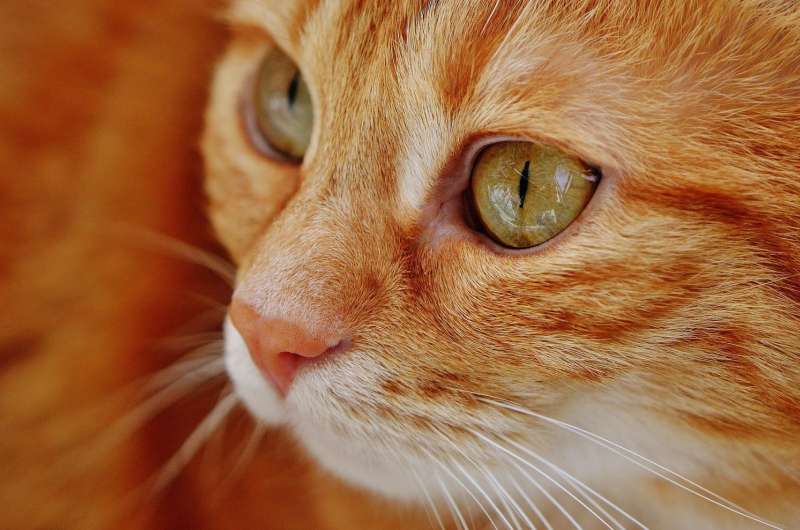Credit: CC0 Public Domain
(Phys.org)—A team of researchers affiliated with several institutions in Japan has found that cats are able to remember events in a way observed in both humans and dogs. In their paper published in the journal Behavioral Processes, the researchers describe their experiments and results.
Prior research has shown that human beings have what is known as episodic memory, which is the ability to connect autobiographical information with contextual details—an example would be recalling the details of a birthday party, rather than just the fact that it occurred. Part of this memory allows for recalling what happened and when, and that was something the researchers wanted to know if cats have as well—other studies have shown dogs have it.
To find out, the researchers worked with 49 cat volunteers, feeding them using multiple bowls of food over time. The researchers learned which types of foods the cats liked best and served it to them in a specific bowl, allowing them to create memories of what was served and when. Later, by switching up the bowls the researchers were able to ascertain whether a given cat remembered such details. Other experiments showed that the cats could remember if they had previously searched a given bowl when looking for a particular treat and the circumstances under which it had occurred.
The researchers report that the cats were able to recall the details of when and where, which, they suggest, shows that much like dogs, they are able to access memories of events and at least some of the details surrounding them. They suggest that it might be possible that cats are able to recall such memories on demand, perhaps as a form of amusement, similar to how we humans daydream. They also note that their research suggests cats may have much longer memories than has been thought—they plan to conduct additional experiments to find out.
The experiments were not a measure of intelligence, of course, as some have reported, but were instead part of a process meant to better understand how cats store and retrieve memories of events they have experienced. In addition to adding to the research on memory in general, the researchers believe their results may help cats and their owners develop better relationships.
More information: Saho Takagi et al, Use of incidentally encoded memory from a single experience in cats, Behavioural Processes (2017). DOI: 10.1016/j.beproc.2016.12.014
Abstract
We examined whether cats could retrieve and utilize incidentally encoded information from a single past event in a simple food-exploration task previously used for dogs (Fujita et al., 2012). In Experiment 1, cats were led to four open, baited containers and allowed to eat from two of them (Exposure phase). After a 15-min delay during which the cats were absent and all containers were replaced with empty ones, the cats were unexpectedly returned to the room and allowed to explore the containers (Test phase). Although the cats' first choice of container to visit was random, they explored containers from which they had not previously eaten for longer than those from which they did previously eat. In the Exposure phase of Experiment 2, two containers held food, one held a nonedible object, and the fourth was empty. Cats were allowed to eat from one of them. In the post-delay Test phase, the cats first visited the remaining baited-uneaten container significantly more often than chance and they spent more time exploring this container. Because the cats' behavior in the Test phase cannot be explained by association of the container with a pleasant experience (eating), the results suggest that cats retrieved and utilized "what" and "where" information from an incidentally encoded memory from a single experience.
Journal information: Behavioural Processes
© 2017 Phys.org






















